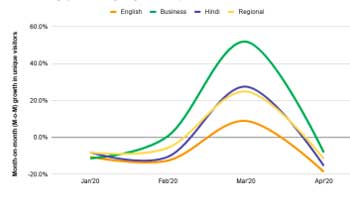– Shishir Baijal –
The real estate industry has been facing some rough weather given the tough demand environment, which got aggravated further with the recent NBFC crisis. While the industry undertakes measures to revive demand, a much-needed impetus from the Union Budget will go a long way in helping turnaround the fortunes of the sector. Considering the current set of challenges, here are a series of recommendations that we believe will help the cause of real estate sector in general and housing demand in particular.
‘Industry Status’ to real estate
Real estate is one of the major contributors to the economy supporting various ancillary industries and providing employment to millions directly and indirectly. Growth in real estate has a multiplier effect on the economy. Despite such strong fundamentals the government does not recognise real estate as an industry.
It is time that real estate gets industry status. This will enable developers to raise funds at lower rates and reduce their cost of capital which would eventually have a bearing on overall project cost. The move would provide a fillip to the stress-stricken sector amid the reforms-driven new order.
GST on overall real estate: Abatement for land should be increased to 50%
The single-tax regime in India ushered in additional cost pressure on real estate. Presently real estate falls under the 18% tax bracket of the Goods and Services Tax (GST) Act with 1/3rd abatement for land taking the effective tax rate to 12%. However, in major metros, the share of land is more than 50% of the project cost. We therefore recommend that the government aligns this with market realities and accordingly increase the abatement for land to 50% thereby bringing down the effective tax rate to 9%.
GST on affordable housing: Abatement for land should be increased to 50%
‘Housing for all by 2022’ is one of the pet projects of the government and it wants to deliver 10 million houses under this program. Out of 10 million, 95% are to be constructed for Economically Weaker Sections (EWS) and Low-Income Groups (LIG). As the affordability of this segment and the house value is low, the impact of the slightest upward cost pressure is magnified and becomes a deal breaker. The current GST rate of 12% coupled with 1/3rd abatement for land, making it an effective GST of 8%, is adding huge upwards pressure on the overall cost of house. We recommend lowering of the GST rates for affordable housing projects to effective 6% by enhancing the abatement for land to 50%. This shall provide a boost to the cause of housing for all by 2022.
Deduction on the principal repayment of housing loans (Section 80 C)
In the Indian context, the ownership of a house is a lifetime goal. At present, Section 80 C of the Income Tax Act does not give a singular focus on housing because of numerous competing investment alternatives. To augment the house purchase decision and provide some fillip to real estate sales, it is suggested to carve out a separate annual deduction of Rs.1,50,000 for the principal repayment.
Considering that in the later years of the home loan tenure, while the buyer is still paying a significant component of his income in the form of principal, he isn’t getting any tax benefit as the interest component in that period is insignificant. To address this dilemma of the home buyer, a separate deduction of Rs. 150,000 for principal repayment will help the cause of his house purchase for the entire loan tenure that extends to as many as 20 years.
Real Estate Investment Trust (REIT)
Despite the regulatory approval being in place for quite some time, REITs, a potent instrument of change in the real estate industry, have been held back. REITs have the potential to enhance the supply of commercial real estate – an enabler for the employment ecosystem. For unit holders, the long-term capital gains holding period for REIT units should be brought down from 3 years to 1 year (at par with equity investments). This shall make REITs more attractive for the investors.
______________________
Shishir Baijal
Author and Entrepreneur
Shishir Baijal, Chairman and Managing Director, Knight Frank India
Disclaimer : The views expressed by the author in this feature are entirely his own and do not necessarily reflect the views of INVC NEWS.
____________

















